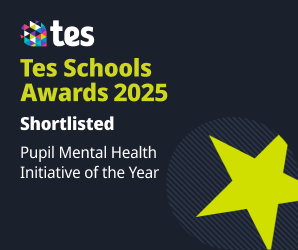English
What is the intent of our English Curriculum?
To develop students that are:
- Literacy rich.
- Global in perspective.
- Exposed to ambitious and diverse literature.
Our curriculum is ambitious and challenging.
Our inquiry-based learning will train students to have high expectations of themselves. They will read ambitious texts, they will tackle challenging and evocative questions in order to evaluate, analyse and create work they are proud of.
Our curriculum is ambitious and challenging.
Our curriculum will examine sources and experiences from across the globe, exploring a multitude of races, creeds and cultures. Our learning experience will support all learners to achieve their individual best, challenging everyone at all levels.
Our curriculum encourages confidence and enthusiasm.
Our curriculum will be delivered in a positive, engaging and vibrant manner with the intention to encourage all students to play an active role in it. It will give students the knowledge base and the confidence to take risks and come out of the comfort zones.
Our curriculum is literacy rich.
Our curriculum will build in excellence in literacy, ensuring that students’ vocabulary, written accuracy and literacy skills are consolidated throughout the course through high expectations, challenge and constant, rigorous reinforcement.
Our curriculum creates internationally-minded IB learners.
Using the IB Learner Profile as a vehicle, our curriculum will create thoughtful and internationally-minded young people through a broad and balanced approach to learning, driven by a culture of personal and interpersonal growth and development.
English at SKA is a story told through the lenses of both Language and Literature. From Year 7 to Year 13 students are given the opportunity to explore, analyse and create language, considering great works of literature and their authors as well as the times in which they lived.
Co-curricular and Enrichment opportunities
- We offer a range of excursions, such as trips to the theatre to see plays such as Macbeth and Blood Brothers and our upcoming IB Language and Literature trip to New York City.
- We have book clubs that run for KS3 and KS4
- The Department Instagram is popular with students and it is a place where students can find inspiration, new ideas and fun quizzes to take part in.
- We will soon be offering a Current Affairs Club which will become the Academy’s first debating group.
- The English Department Literary Canon. A one hundred book reading challenge
Years 7, 8 & 9
In KS3 (Years 7-9), our students will begin laying foundation skills for their work in KS4 and KS5. Over the three years of KS3, students will become MYP learners as they progress through the units of study. This will enable them to develop the core learning skills that will become so crucial at GCSE and IB. An important part of our planning process for this is ‘backward planning’ in which we consider the skills, knowledge and content base that our students will need at KS4/5 and scaffold that from day one of Year 7.
We believe that our KS3 lays the foundations well for students to become excellent GCSE and IB learners. It enables them to be autonomous with their learning but also knowledge-rich, balanced and investigative members of society.
Students in Key Stage 3 can expect to study the following and more:
- Contemporary fiction such as The Bone Sparrow and Salt to the Sea.
- The works of Shakespeare, including his language and his life.
- Iconic and influential poetry by legendary poets such as Tatamkhulu Afrika and Charles Bukowski.
- The magic of persuasive writing and exploring non-fiction written forms.
- Sensationalism in media.
- The language of power.
- Gothic fiction; examining canonical and influential texts such as Frankenstein and Dracula.
- Developing fictional writing skills.
- Reading and enjoying classic texts such as Of Mice and Men and To Kill a Mockingbird.
Years 10
In Year 10, students will begin KS4 English. Our exam board is WJEC Eduqas for GCSE English Literature, and AQA for GCSE English Language; specifications and revision guides available below:
Specifications
WJEC Eduqas GCSE English Literature Specification
AQA GCSE English Language Specification
Revision Guides
www.amazon.co.uk/s?k=eduqas+english+gcse&ref=nb_sb_noss_2
In Year 10 and 11, students will study English Literature and English Language GCSEs simultaneously. Over the course of the two years, students will also keep a Learning Portfolio of their very best work. This will serve as revision materials for them as the courses progress together.
As they study their set texts, given that Literature is much more content heavy, English Language will be threaded through the teaching of Literature but also given a Focus Week once a term, in which students will work on dedicated exam skills for Language. They will also have English Language project work to complete each term.
In English Literature GCSE, students will sit two examinations as detailed below:
- Component 1 (2 hours) (40% of GCSE)
- Anthology Poetry. Students will study 18 poems, one of which will be given to them in the examination. They will then have to compare that poem to one from memory. They are assessed on their knowledge of context here.
- Shakespeare. Students will answer one extract-based question and one essay question on a Shakespeare play that they have studied.
- Component 2 (2 hours 30 minutes) (60% of GCSE)
- Post-1914 text. Students will be asked one question which gives an extract as stimulus and the students must then use the extract to write about the text as a whole. This is known as an ‘exploding extract’ question.
- 19th Century text. Students will tackle an ‘exploding extract’ question again but making explicit reference the text’s context as well here.
- Unseen Poetry. Students will be given two previously unseen poems. They will have to analyse the first one in depth and then compare it to the second.
In English Language GCSE, students will sit two examinations as detailed below:
- Component 1 (1 hour 45 minutes) (40% of GCSE)
- Students will be given an extract of fiction and they are to answer five questions of varying complexity on the extract.
- Students must then produce a ‘narrative’ (short story) of 450-600 words in 45 minutes based on a choice of four stimuli.
- Component 2 (2 hours) (60% of GCSE)
- Students will be given two extracts of non-fiction to work with. They will be required to answer six questions of varying complexity, some of which will involve comparison.
- Students will then be required to tackle two non-fiction writing tasks which could be speeches, letters, reports, articles, leaflets or reviews. Each task should take approximately 30 minutes here.
Year 11
In Year 11, students continue KS4 English. Our exam board is WJEC Eduqas; specifications and revision guides available below:
Specifications
www.eduqas.co.uk/media/42ldm0wa/eduqas-gcse-english-literature-spec-from-2015.pdf
www.eduqas.co.uk/media/10ea1en0/eduqas-gcse-english-language-from-2015-e.pdf
Revision Guides
www.amazon.co.uk/s?k=eduqas+english+gcse&ref=nb_sb_noss_2
In Year 10 and 11, students will study English Literature and English Language GCSEs simultaneously. Over the course of the two years, students will also keep a Learning Portfolio of their very best work. This will serve as revision materials for them as the courses progress together.
As they study their set texts, given that Literature is much more content heavy, English Language will be threaded through the teaching of Literature but also given a Focus Week once a term, in which students will work on dedicated exam skills for Language. They will also have English Language project work to complete each term.
In English Literature GCSE, students will sit two examinations as detailed below:
- Component 1 (2 hours) (40% of GCSE)
- Anthology Poetry. Students will study 18 poems, one of which will be given to them in the examination. They will then have to compare that poem to one from memory. They are assessed on their knowledge of context here.
- Shakespeare. Students will answer one extract-based question and one essay question on a Shakespeare play that they have studied.
- Component 2 (2 hours 30 minutes) (60% of GCSE)
- Post-1914 text. Students will be asked one question which gives an extract as stimulus and the students must then use the extract to write about the text as a whole. This is known as an ‘exploding extract’ question.
- 19th Century text. Students will tackle an ‘exploding extract’ question again but making explicit reference the text’s context as well here.
- Unseen Poetry. Students will be given two previously unseen poems. They will have to analyse the first one in depth and then compare it to the second.
In English Language GCSE, students will sit two examinations as detailed below:
- Component 1 (1 hour 45 minutes) (40% of GCSE)
- Students will be given an extract of fiction and they are to answer five questions of varying complexity on the extract.
- Students must then produce a ‘narrative’ (short story) of 450-600 words in 45 minutes based on a choice of four stimuli.
- Component 2 (2 hours) (60% of GCSE)
- Students will be given two extracts of non-fiction to work with. They will be required to answer six questions of varying complexity, some of which will involve comparison.
- Students will then be required to tackle two non-fiction writing tasks which could be speeches, letters, reports, articles, leaflets or reviews. Each task should take approximately 30 minutes here.
Years 12 & 13
IB Language and Literature
At SKA, our students are fortunate enough to study the IB. The IB enables students to consider and develop their place in society and the world as a whole through an academic and highly inquisitive lens.
IB Language and Literature is a varied and diverse course, which gives students the opportunity to study classic works of literature from around the world but also considering closely the art of language in all its forms; investigating the true definition of a ‘text’. The course is taught through inquiry and exploration, giving students the opportunity to build arguments and perspectives autonomously as we work through the course. Below is a list of the set texts that are studied and an outline of the assessment. Please note that there is also a huge range of Non-Literary Bodies of Work which are studied from a range of different authors, time periods and settings. A list of some of these is available on request.
Literary Works Studied:
- Antigone
- The Great Gatsby
- 12 Years a Slave
- The World’s Wife poetry anthology
- The Crucible
- The Whale Rider
Assessment
External Assessment (4 hours) (70%)
Paper 1: Comparative textual analysis (25%)
The paper consists of two pairs of unseen texts
Subjects write a comparative analysis of one pair of texts (20 marks)
Paper 2: Essay (2 hours) (25%)
In response to one of six questions students write an essay based on at least two of the literary texts studied in part 3. The questions are the same at SL but the assessment criteria are different. (25 marks)
Written tasks (20%)
Students produce at least four written tasks based on material studied in the course.
Students submit two of these tasks for external assessment (20 marks for each task)
One of the tasks submitted must be a critical response to one of the prescribed questions for the HL additional study.
Each task must be 800-1,000 words in length plus a rationale of 200-300 words.
Internal Assessment (30%)
This component is internally assessed by the teacher and externally moderated by the IB at the end of the course.
Individual oral commentary (15%)
Students comment on an extract from a literary text studied in part 4 of the course. (30 marks)
Students are given two guiding questions.
Further oral activity (15%)
Students complete at least two further oral activities, one based on part 1 and one based on part 2 of the course.
The mark of one further oral activity is submitted for final assessment (30 marks)
Please see more course details here.








